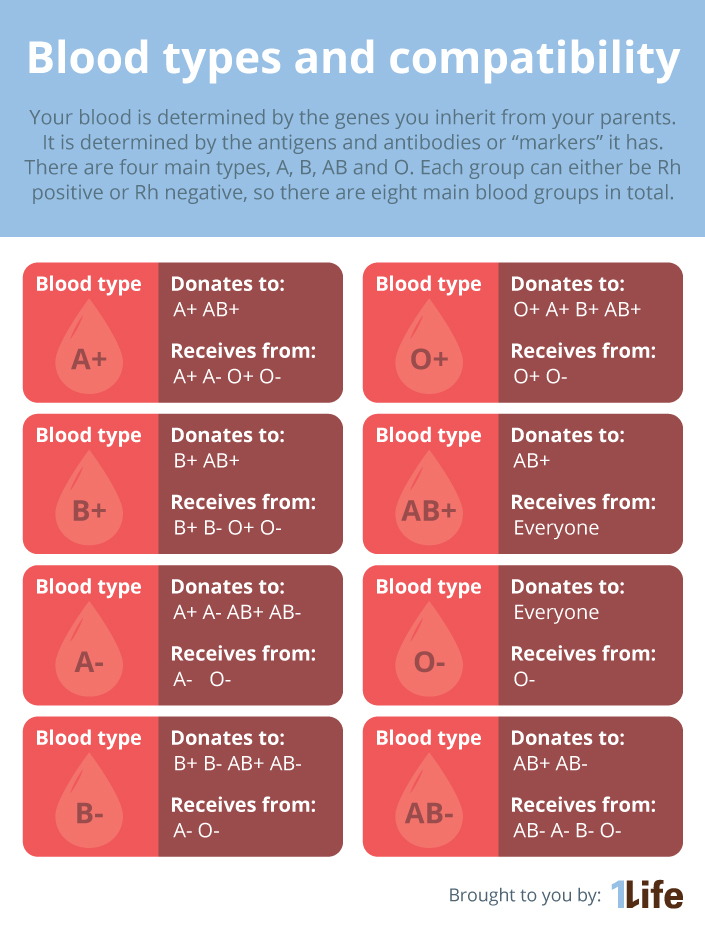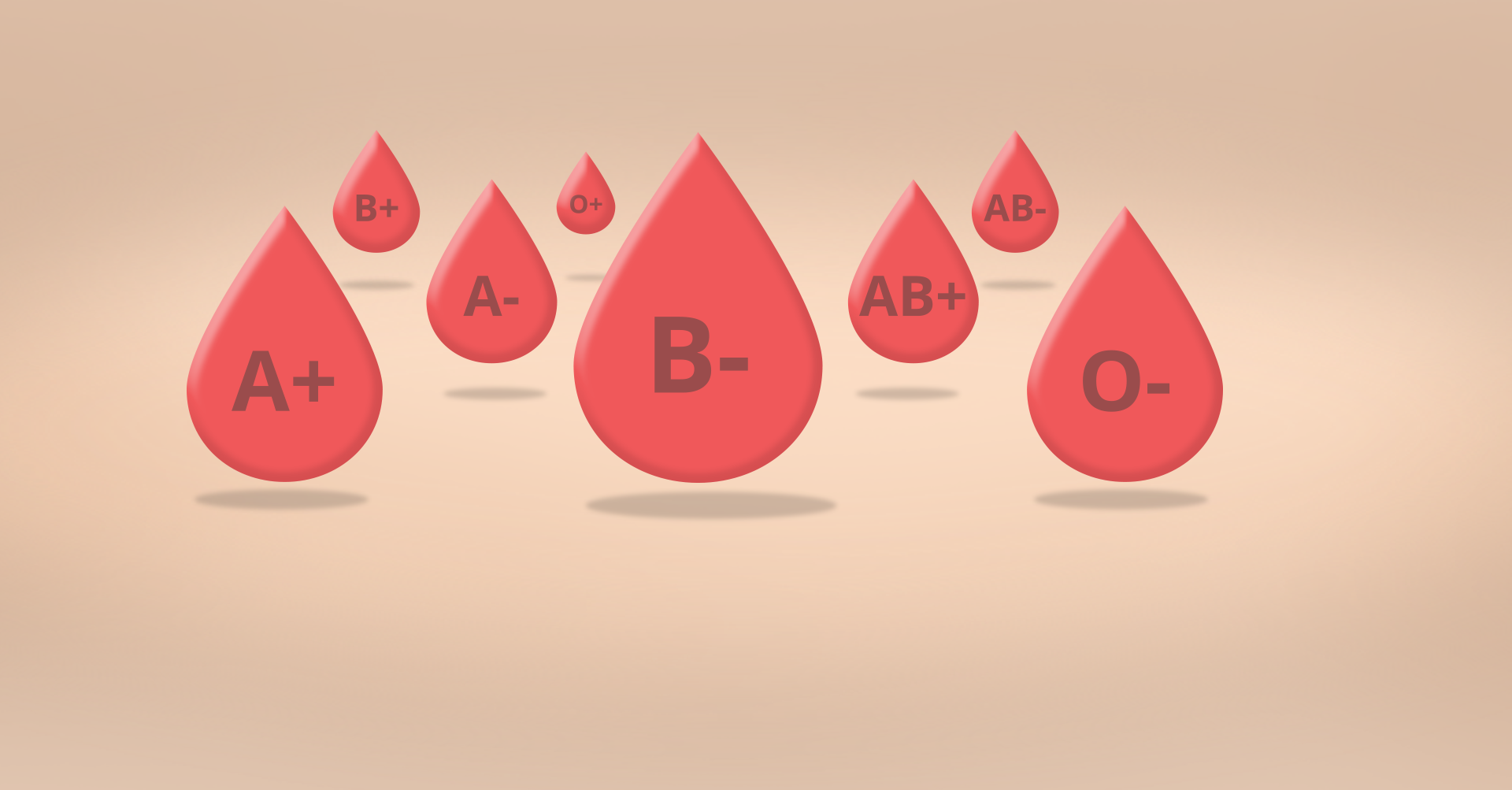Do you know your blood type? Well, you should! Here are four reasons why it’s important:
1. In a medical emergency
If you need a blood transfusion urgently, it helps if your doctors know your blood type beforehand as this can save valuable minutes. If you get an incompatible blood type, it could cause your cells to clump, which is a life-threatening condition.
It’s also helpful to know the blood types of your close family members so that if you or someone else needs blood in an emergency, the right family member can donate.
2. If you are pregnant
It is important to know if your blood type is positive or negative (see box below) when you are pregnant, because if you are Rh negative and your baby is Rh positive (called Rh incompatibility) then your body may treat the baby as an allergen and could send antibodies through the placenta to attack your baby’s red blood cells. This is called haemolytic anaemia and can be life threatening for the baby.
The antibodies usually take a while to build up in your body, so it’s possible that they will only threaten your second pregnancy, but a blood test in early pregnancy will reveal your risk, and your gynae or clinic nurse will tell you what medication you need to take to prevent this.
3. If the blood bank needs a certain type of blood
If there is an emergency or low supply of a particular blood type, the South African National Blood Service (SANBS) will send out a call for donors of that blood type to come in and donate. If you know your blood type, you can respond to this call and your blood could save a life. In fact, one unit of blood can save up to three lives.
Some medical professionals even say that donating blood is healthy for you because it improves your cardiovascular health by reducing iron levels in your blood, and by promoting the creation of new red blood cells.
You may not give blood if you have or may recently have contracted a sexually transmitted disease such as HIV or syphilis, which can be passed to a patient through their blood. You may also not donate if you have had sexual contact with someone whose background is unknown to you. And you may not give blood if you weigh less than 50kg.
You can find out more about the blood donation process in South Africa here.
4. To predict your risk of certain diseases
It appears that certain blood types are associated more strongly with certain diseases:
- Blood clots - AB type blood
- Heart disease - AB type blood
- Fertility - O type women have been shown to carry fewer viable eggs
- Stomach cancer - A type blood has a higher rate of incidence
- Stress - A type blood has been shown to carry higher levels of the stress hormone, cortisol
While blood type certainly isn’t a diagnostic tool, being aware of the higher risks associated with your type might make you more likely to take preventative action, or to spot the signs early.
Convinced yet?
It is certainly a good idea to know your blood type, and it can be determined by a relatively simple blood test through your GP, clinic or pharmacy. You will also find out your blood type if you donate blood. It’s a good idea to know.





